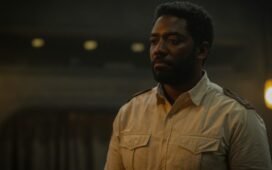Music is one of the most important elements in a movie or TV show. The right musical score can evoke strong feelings and set the mood, whether it’s triumphant, somber, whimsical, suspiring, etc. Music cues help pace the storytelling by signaling to the audience when an important moment or turning point is about to happen. Familiar melodies and motifs clue viewers in on what to expect next. Production houses also use music in various other ways in TV shows and movies, and this is what this article will focus on.
Nostalgia-based Marketing
Nostalgia is one of the most powerful marketing tools because people want to be taken to or reminded of past experiences, places, and people they have met before. It is, therefore, not surprising that movie and TV show marketing departments use music to induce nostalgia in their audiences.
Nostalgia also plays a role in making TV shows and movies instantly recognizable to fans. This is especially true for past TV shows and movie reboots. The soundtracks to shows like “Hawaii Five-0” are so recognizable that they helped them get favorable ratings when they aired again. This recognition is perhaps why such shows typically have so many seasons; the audience is already there and locked in to see what this new iteration will bring.
It is important to also realize that marketing departments do not only use music for nostalgia-based marketing. They also use original soundtracks as standalone marketing tools. Perhaps the best example of this is the “Guardians of the Galaxy” soundtrack. It features classic rock hits and quickly rose to the top of the charts. This helped it and the movie it is associated with reach a much wider audience.
Music Helps Create a Movie or TV Show’s Brand Identity
While it can happen in movies, music in the form of theme songs is used to make them instantly recognizable, with some theme songs being so iconic that they are now part of pop culture. Some of the best examples in this case are the openings for “Friends,” “The Simpsons,” or “Game of Thrones”. All of these shows’ theme songs are so iconic that most people can recognize the show they are associated with without seeing it when it is played.
Using Music for Emotional Impact
Studies show music can evoke complex emotions in humans. It can make us feel fear, sadness, excitement, joy, and other emotions, and the interesting thing is that this can also happen subconsciously. This fact is something almost all modern movies embrace.
A good example of production studios using music in this way is in the horror genre. The creative use of discordant sounds, tense strings, and other sounds we consider scary can create a sense of fear or unease. This can happen even when anything scary happens or appears on the screen or is about to.
Another creative use of sound to evoke emotions is in the romantic genre, where soft melodies can create feelings of longing or tenderness.
Sometimes studios use sound to deepen emotional connections between their movies and audiences. The TV show “Stranger Things” does this brilliantly through its use of “Should I Stay or Should I Go” by The Clash. The song was featured in the series, which made many people start associating it with supernatural struggles and a strained relationship between the brothers Jonathan and Will Byers.
Sound is an Excellent Tool for Creating the Right Atmosphere
Producers can also use sound to set the tone for a scene or whole production. In the action genre, directors and producers will use fast-paced electronic music to create a sense of urgency. They can also use ambient sounds to create a surreal or dreamy experience.
The most important thing to consider for budding filmmakers who want to use music this way is ensuring they choose the right style, tempo, and instruments. Going with the “Stranger Things” example again, its use of synth-heavy music creates the 1980s feel Netflix was going for.
Filmmakers can also use the right type of music to create an atmosphere that people who use assistive tools like hearing aids can appreciate. They can do this by simplifying the sounds and instruments used so they are not confusing to these fans while also introducing bass that leads to vibrations on surfaces or within the body.
Many people with hearing loss or impairment like feeling the music vibrating within their bodies and appreciate filmmakers who know this and use it when creating their movies.
Music Can Also Provide Narrative Support
Filmmakers have a lot of narrative tools they can use to create memorable productions or make their movies better. One is music, which they can also use as a storytelling tool.
Filmmakers can use it to emphasize different plot points, such as when something significant is about to happen. Do note, though, that many filmmakers use music this way subtly so you pay attention to what is happening on the screen instead of focusing on when the music changes.
They can also use different types of music to foreshadow events or provide subtext that is not contained within dialogue between characters. If you watch enough movies, you will notice filmmakers using movies to hint at upcoming trouble for one of the characters.
Using Music to Show Character Development
Filmmakers can also use different types of music and motifs to provide insight into the personalities or developments of their characters. A character might start with a melancholic or broody melody whenever they are featured or walk into a room and have a different “soundtrack” by the end of the movie or TV show.
While the change in the music associated with them will be subtle as their character changes, rewatching a TV show or movie can lead to the audience seeing this change as it happens a second time.
The best example of filmmakers using music to denote a character is Darth Vader’s Imperial March in “Star Wars”. It instantly conveys his menacing presence, and this is perhaps why it is used in social media culture to denote a negative or evil personality.
Even if you have never paid close enough attention to the music used in your favorite TV shows and movies, you can at least recognize some of the ways it is used, as discussed above. You might not realize how music impacts your emotions, brings about nostalgic feelings, or helps you identify a production immediately, but you know it happens. All of these cement music as one of the most important elements added to the art most people enjoy on their screens.















